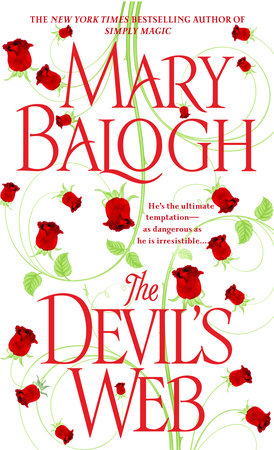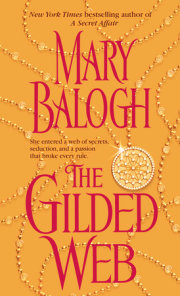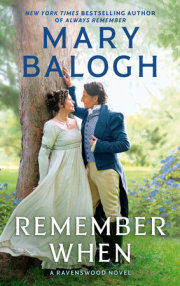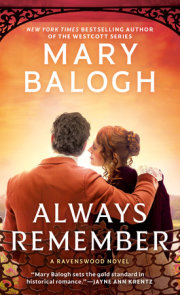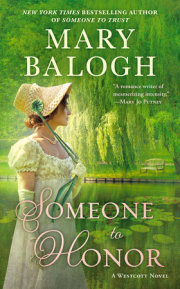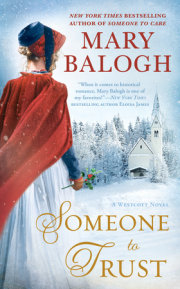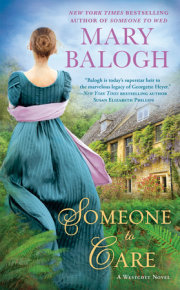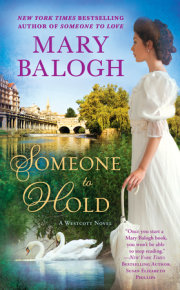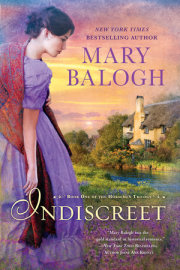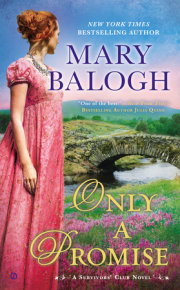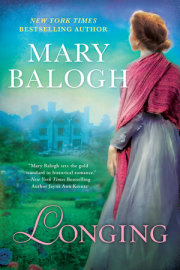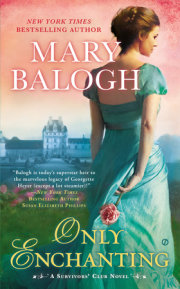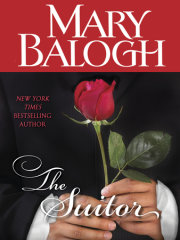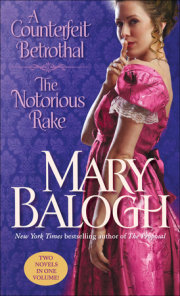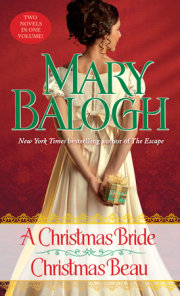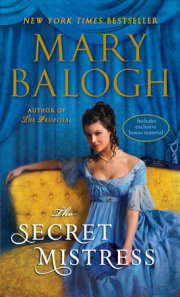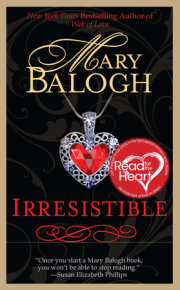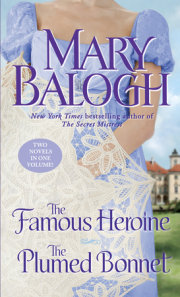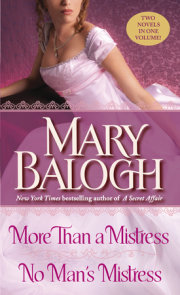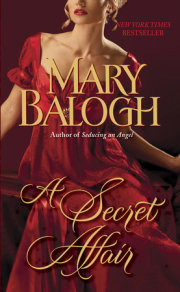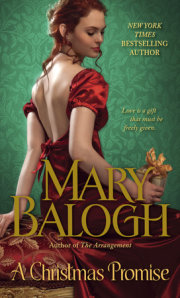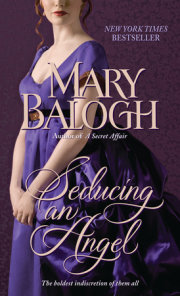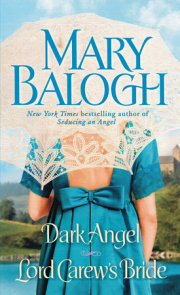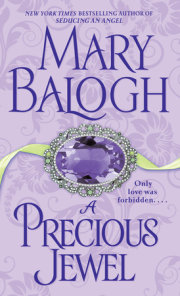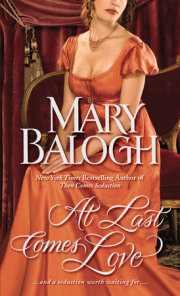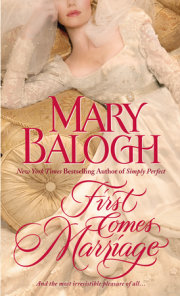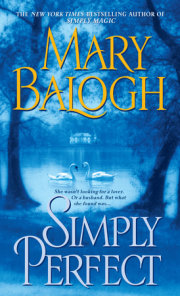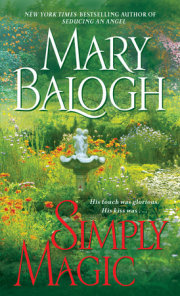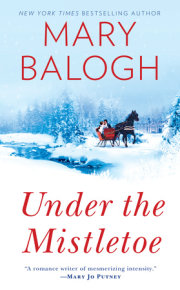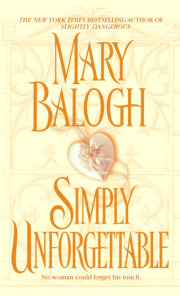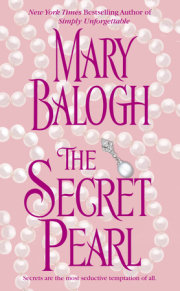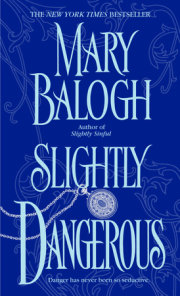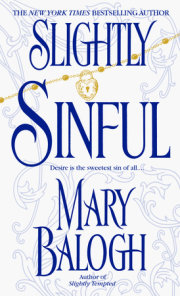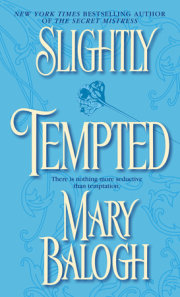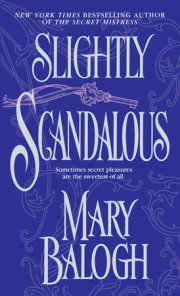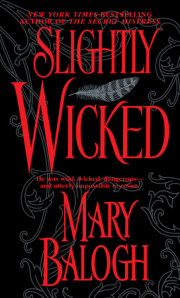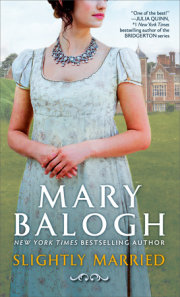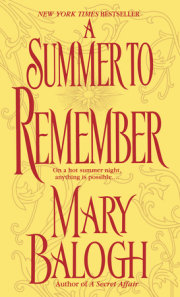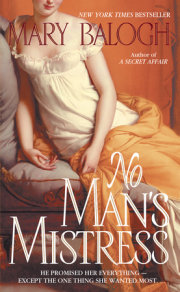Chapter One
The cliffs of the south coast of England were visible to larboard, the morning mists having lifted, though the clouds still hung low and heavy and the sea was slate gray and heaving. The Adeona, one of the ships belonging to the North West Company of Canada, was bringing furs to the auction markets of London.
The cliffs of England. Of home.
A clerk of the company, one of those whose task it was to accompany the furs across the Atlantic and to transact the company's business in London, stood at the rail of the ship, one arm propping him against it, the other hand clinging to a taut rope attached to the rigging, his feet planted firmly apart for better balance, and tested the thought in his mind.
Home.
Soon he would set his feet again on his native soil, the very soil he had shaken from them four years before without a moment's hesitation. As he had once said to someone in England, though he did not care to remember whom, he had liked the sight of the sea because it represented his escape from England. And he had escaped.
But she had said that perhaps it was from himself he wished to escape and that it could not be done. For wherever he went, however far he ran, he must inevitably take himself along too.
She had been right. He had taken himself to Canada-to Lower Canada to be precise, to Montreal. And since that had not by any means been far enough, then he had become a clerk with the North West Company, a group of merchants and traders in furs, and had taken himself off with a canoe brigade beyond Lower Canada, even beyond the limits of Upper Canada, beyond the limits of civilization.
Three thousand miles beyond Montreal he had journeyed. He had spent three years there, in the Athabasca country, with only a handful of other fur-trading men and the native inhabitants of the country for company.
He could have gone no farther without falling entirely off the end of the world, it had seemed, though some men had crossed the barrier of the mountains and reached the Pacific Ocean. And of course, it was true that he had taken himself every inch of the way. The only difference was that he had come to like himself a little better while that far away from home. While that far away from his memories.
But of course he could not escape memories as effectively as he had escaped from an island. They kept intruding. They were only as far away as his mind. And so he was coming back home for a few months. He might have stayed in the interior for years-most clerks of the company did, earning partnership by slow degrees and hard work. But he had requested, and been granted, a position in Montreal for a year. And because even there he could not be free of his past, he had requested, and been granted, the task of bringing the furs to auction.
And now he was almost back where he had started. Sometimes the mist and the water met so that he could no longer see the cliffs of southern England, but he knew they were there. And the Adeona was taking him very surely to London.
He did not want to be there. Or in any other part of England. Least of all in Yorkshire, where he had lived most of his life. But he would not go there. He would be working in London. There would be no time to make the ultimate journey home. And there was no point. There was nothing to be gained by going back there.
That particular episode in his life was long in the past. Long ago in his youth, when one could be expected to make mistakes. He had made one-more than one, perhaps-and he had tried to put it right. Tried until he had thought he was going mad. And failed. There was nothing he could do about it now.
It would be better to stay away from there. He was coming back to England. Surely that was enough. There was no need to worry the wound until it was quite raw again.
And yet it was that very episode from his youth that he sometimes thought would always prevent him from being entirely free.
He would not think of it. The sea was choppy. He looked down into its gray depths as the ship beneath his feet dipped and heaved. And he took off his beaver hat, which had been pulled low over his brow, in order to let the damp wind blow through his dark, overlong hair.
He probably would not have to go home to Yorkshire in order to see his parents. They would doubtless be in London to see him, and probably staying with Alex. Alex! Yes, for years before he left for Canada his sister had been the most important person in his world. She had married the Earl of Amberley after his departure and now had a son and a daughter. He longed to see them-and her, of course. It was surely worth coming home just to see Alex and discover if she had found the happiness she had never known as a girl.
She had never been allowed to be happy then. Neither had he. They had had the misfortune to have a father whose firmly held religious beliefs led him to eliminate all enjoyment from life, both for himself and for his family. And of course, there had been the dreadful quarrel between himself and his father, unresolved before he left and surely unresolvable now.
James Purnell sighed and looked up to the dimly visible cliffs of England again. Why was it that it was possible to hate and to love both at the same time? How was it that he could hate his father and reject all that he stood for and resent what his father had done to his life and to Alex's and yet at the same time love him and crave his understanding and his approval? He was a man of thirty years, and yet he seemed to have a child's need for a parent's affection.
"James?"
A light and welcome voice broke in on his thoughts, and he turned to watch the careful and somewhat unsteady approach of a small, slim girl whose brown hair was neatly confined beneath her bonnet and whose shapely form was concealed behind the folds of a heavy cloak. Her lips smiled, and her cheeks were already rosy from the freshness of the wind. Her eyes were sparkling.
"Duncan knocked on my door to tell Miss Hendricks and me that the coast of England was visible," she said, as he took her elbow in a firm clasp and guided her to the rail, where she would have something firm and safe to cling to. "And I saw immediately through the porthole that it was true. I simply had to come up on deck for a better look. England, James! I can scarce believe it."
"Your first sight of it, Jean," he said, smiling indulgently. "I can remember my first sight of Canada four years ago. I know just the excitement you are feeling."
She smiled up at him before returning her wide-eyed gaze to the distant cliffs. "It has been worth it after all," she said. "The dreadful food and the incessant motion and Miss Hendricks sick almost from the moment of our embarking." She giggled. "She has not been much of a chaperone after all, has she, the poor dear?"
"But you have had your brother to watch after you," he said.
She breathed in a deep lungful of salty air and closed her eyes. "I am so happy that Father said I could come with Duncan to join him in London," she said. "I have always wanted to see London. Is it really the most exciting city in the world?"
James Purnell smiled again. "I have not seen many of the rest of them to make comparisons," he said. "But I suppose it is exciting, if you like that type of excitement."
"You have a sister here, don't you?" she said. "And parents. You must be very happy about seeing them again."
"Yes." He gazed at the cliffs with dark, inscrutable eyes. "I was always extremely fond of Alex. She is five years younger than I. And my mother will be pleased to see me, I think."
The girl wrinkled her nose. "Well, of course she will," she said. "Will they be in London? I would dearly like to meet your family."
He looked down at her. "I have no idea," he said. "I may have to travel down into Hampshire to see my sister. She is married to the Earl of Amberley. He has a large estate close to the sea. We will doubtless sail almost within sight of their home."
"She is a countess?" she asked, her eyes widening. "You did not mention that before. And your father is a baron, is he not?"
"Lord Beckworth," he said.
"It must be wonderful to be someone of some importance in London," she said. "To have entry to all the most fashionable gatherings. And this is the time of the Season, is it not?"
"June?" he said. "So it is. But your father is not precisely a nobody, Jean. Douglas Cameron, partner in the company, respected merchant. You will have an opportunity to enjoy yourself, never fear."
"Perhaps," she said with a sigh. "But he is not exactly high ton, is he? Far from it. I suppose you are. Or were. And will be again as soon as you set foot on English ground. You are very fortunate."
"Yes," he said.
He had spent his first year in the Athabasca country with Duncan Cameron, the girl's brother. Naturally enough, when he had discovered his old friend in Montreal two years later, they had renewed their friendship. And he had become acquainted with Jean Cameron. He had not seen a great deal of her, as she had only recently finished her schooling at a convent, though her family was not Catholic.
Her presence on board ship had been like a breath of fresh air. Her spirits had not been dampened either by the tedium of the long days or by the indisposition of her chaperone, Miss Hendricks, a schoolmistress who was returning to England to keep house for a recently widowed brother. Jean Cameron had spent a great deal of her time with her brother and with him. She treated him almost as if he were another brother, but he was not sure he could see her as a sister. On several occasions he had resisted with some effort the urge to kiss her.
He must resist. A kiss to so young and strictly brought up a young lady would seem very little different from a proposal of marriage. And he was not in the marriage market. Not for her or anyone else.
They lapsed into silence. Jean seemed content to gaze her fill at the coast of England and to dream of the enjoyment the summer in London would bring. And James Purnell appeared to forget her presence beside him. His lean, weather-bronzed face grew hard and he gazed sightlessly at the cliffs that were so enthralling his companion.
He was thinking of another woman, yet another burden he had carried around with him for four long years. Madeline. Lady Madeline Raine. She had told him that he would take himself wherever he went. She had not also said that he would carry her around inside his head just as surely. Madeline with her bright, fair curls and eager, vital face. Madeline with her tall, slender, lithe form. Madeline, talkative and frivolous and empty-headed.
Or so he had always told himself, as if he needed somehow to convince himself that what he had felt for her had been nothing but a physical passion. Nothing serious. Nothing lasting. Only enough to haunt his every waking moment and his every dream for four years.
Though that must, of course, be an exaggeration. Pure sentimentality.
He needed to see her again. Perhaps it was to see her more than for any other reason that he was making this unnecessary journey. He must convince himself that there really was no substance to his dreams. He must rid himself of the obsession.
For he was no more free to love than he had been four years before. Free to marry, perhaps, if he so wished. But not free to love.
He would free himself of her, at least. It was necessary to see her. To see that she was six and twenty years old now, past her prime, her beauty and vitality doubtless faded.
And he doubtless would see her. She was Alex's sister-in-law, Amberley's sister. And still unmarried, according to Alex's last letter, though she had been betrothed the summer before to an officer of the Guards, wounded at the Battle of Waterloo. The engagement had been broken, however-typical of Madeline and her shallow nature. Except that perhaps she was not really shallow. Perhaps he had just made her so in his mind so that he would not love her.
Her twin brother, Dominic, Lord Eden, had married, Alex had announced in that last letter. But not Madeline. He wished she had married her officer. He could have forgotten about her then.
Perhaps.
"Will you be going to any balls, do you suppose?" Jean Cameron asked.
He looked down at her wistful face and smiled. "Not if I can avoid them," he said. But he felt again the tenderness for her youth and eagerness that he was finding hard to resist. "But if I do have an invitation that cannot be refused, I shall take you along with me-if you wish it and your father permits it, of course."
Her face lit up so that once more he had to hold himself aloof, prevent himself from bending forward and brushing her lips affectionately with his own. "Oh, would you?" she said. "Would you really, James?" Her eyes focused on a point over his shoulder. "Duncan," she called. "Come and hear what James has just promised. Oh, do come."
James Purnell looked back over his shoulder and raised his eyebrows in a rather rueful expression at his stocky, sandy-haired friend.
Lady Madeline Raine was sitting in a window recess in the drawing room of the Earl of Amberley's house on Grosvenor Square. She was holding her two-month-old niece on her lap and gazing down into the child's open eyes. Her twin brother, Lord Eden, the father of the child she held and of its twin, who was sleeping in his own arms, sat with her. They were a little apart from the other occupants of the room and participated both in the general conversation and in their own private one.
"What a fascination babies are," Madeline said. "Have you noticed, Dom, how a baby will always be the center of attraction in any room?"
"I have noticed that you have no eyes for anyone but Olivia," he said with a grin, "and occasionally Charles. You have scarcely glanced my way, Mad, even though we have not seen each other for almost two months until today."
Copyright © 2007 by Mary Balogh. All rights reserved. No part of this excerpt may be reproduced or reprinted without permission in writing from the publisher.

